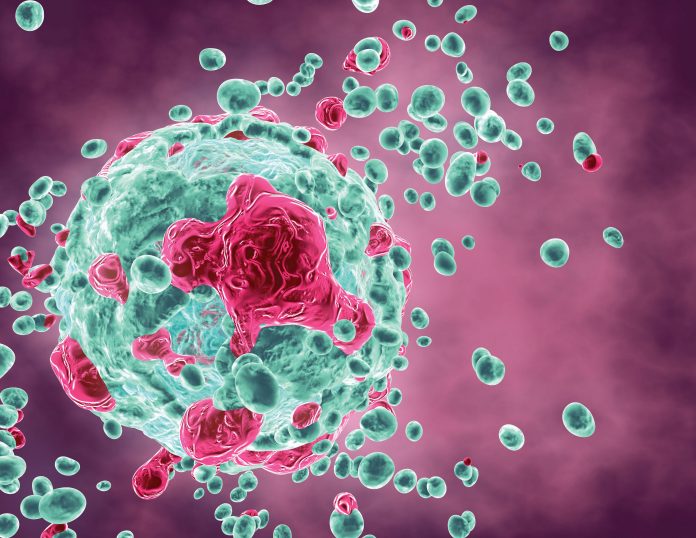
Clinical stage immune-oncolgy company Imugene and City of Hope, announced the first patient dosing in a Phase 1 clinical trial evaluating the safety of novel cancer-killing virus CF33-hNIS VAXINIA when used in people with advanced solid tumors. The City of Hope-developed oncolytic virus has been shown to shrink colon, lung, breast, ovarian and pancreatic cancer tumors in preclinical laboratory and animal models.
City of Hope exclusively licensed patent rights covering CF33 to Imugene Limited, a company developing novel therapies that activate the immune system against cancer. Imugene has given CF33-hNIS the name Vaxinia.
“Our previous research demonstrated that oncolytic viruses can stimulate the immune system to respond to and kill cancer, as well as stimulate the immune system to be more responsive to other immunotherapies, including checkpoint inhibitors,” said Daneng Li, M.D., principal investigator and assistant professor of City of Hope’s Department of Medical Oncology & Therapeutics Research. “Now is the time to further enhance the power of immunotherapy, and we believe CF33-hNIS has the potential to improve outcomes for our patients in their battle with cancer.”
Oncolytic virus therapy are viruses that are genetically modified to infect, replicate in, and kill cancer cells—while leaving healthy cells intact. While immune checkpoint inhibitors have been effective in some cancers, patients often relapse and eventually stop responding to or develop resistance. Early research shows that oncolytic viruses can prime a person’s immune system and increase the level of PD-L1 in tumors, making immunotherapy more effective against cancer.
The multicenter Phase 1 trial will deliver—via direct injection into tumors or intravenously—a low dose of CF33-hNIS to cancer patients with metastatic or advanced solid tumors who have had at least two prior lines of standard of care treatment.
Once patients in the single therapy group have been treated with the lowest doses of CF33-hNIS and acceptable safety has been demonstrated, certain new study participants will receive the experimental oncolytic virus in combination with the immunotherapy pembrolizumab, an engineered antibody that improves the immune system’s ability to fight cancer-causing cells. The study aims to recruit 100 patients across approximately 10 trial sites in the United States and Australia.
“Interestingly, the same characteristics that eventually make cancer cells resistant to chemotherapy or radiation treatment actually enhance the success of oncolytic viruses, such as CF33-hNIS,” said Yuman Fong, M.D., the Sangiacomo Family Chair in Surgical Oncology at City of Hope and the key developer of the genetically modified virus. “We are hoping to harness the promise of viralogy and immunotherapy for the treatment of a wide variety of deadly cancers.
The U.S. component of the Phase 1 trial is conducted under the FDA’s investigational new drug (IND) process following FDA IND clearance in December 2021. Site activation and patient recruitment is proceeding.
The first clinical institution in the U.S. to receive ethics approval is City of Hope, a world-renowned cancer research and treatment organization in Los Angeles. Additional clinical sites will be opened across the U.S. in 2022.
Imugene M.D. and CEO Leslie Chong said, “The dosing of the first patient in our VAXINIA study is a significant milestone for Imugene and clinicians faced with the challenge of treatment for metastatic advanced solid tumours. Professor Yuman Fong and the City of Hope team have provided outstanding research. In addition to the positive preclinical results, we’re incredibly eager to unlock the potential of VAXINIA and the oncolytic virotherapy platform.”













